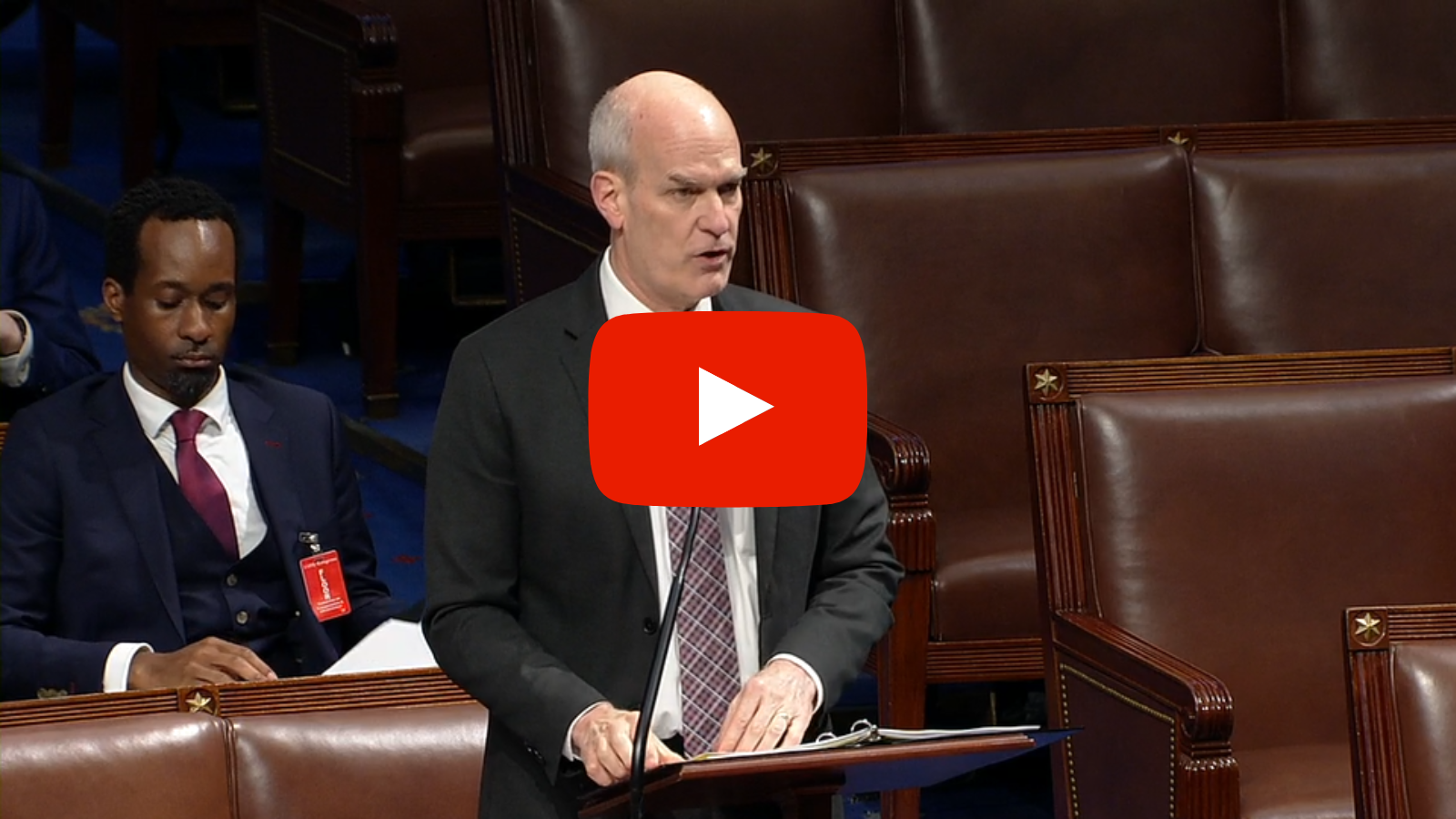Washington, D.C. – Today, Ranking Member of the House Committee on Transportation and Infrastructure Rick Larsen (D-WA) defended President Biden’s veto of H.J. Res. 27, the House Republican resolution which would overturn vital clean water protections and threaten the economic and environmental health of communities around the country.

To view the video, click here.
Read the full remarks, as written, below:
Clean water is critical for the health and safety of our communities and our families.
Our local businesses, our farmers, and our economy depend on clean water for their success and prosperity.
House Democrats have a proud and successful history supporting clean water.
House Democrats have championed investments in our nation’s water and wastewater infrastructure systems—ensuring that all communities can trust in the safety of the water they drink and treatment of wastewater they produce.
Last Congress, House Democrats provided historic, bipartisan investment in our nation’s infrastructure through the Bipartisan Infrastructure Law. Specifically for clean water, the BIL invests almost $13 billion in clean water infrastructure and is creating jobs in communities across the country.
The BIL showed what Congress can do when we focus on the needs of American families. Today, I would put to you that we are doing the opposite and putting polluters over people with this doomed veto override attempt.
My State of Washington is defined by its clean water, including the health of the Puget Sound and the hundreds of crystal-clear lakes and thousands of miles of rivers and streams that run through the state.
My constituents know that rivers, streams and wetlands are intrinsically connected. Pollution that starts in one body of water does not just stay put.
House Democrats know we can protect clean water while providing certainty to businesses, farmers and for everyone who depends on clean water for their lives and livelihoods.
This is especially true for the 117 million Americans who depend on smaller streams as a source of drinking water at a time when many states continue to face historic droughts.
My colleagues on the other side of the aisle say they want clean water rules that are simple, clear and easy to follow. So do we. We agree on that.
The Biden administration’s Clean Water Restoration Rule does just that—following the law and the science of protecting clean water while providing regulatory certainty and stability for everyone.
Unfortunately, this resolution does the opposite, and I applaud the Administration for vetoing H.J. Res. 27.
My colleagues on the other side of the aisle say they want “bright lines” in the regulation of clean water; yet, the only proposal they seem to support is the “Navigable Waters Protection Rule” of the previous administration—a proposal which removed federal protections on roughly half of the nation’s wetlands and 70 percent of its rivers and streams.
That rule was rightly rejected by a federal court in 2021 as “fundamentally flawed” and likely to cause “serious environmental harm” every day it remained in effect.
Yet, despite their call for certainty, my colleagues fail to recognize that passage of this resolution would, again, leave Americans without a clear definition of “waters of the United States.”
By taking away this clarity, this resolution would bring back the very same uncertainty and ambiguity its supporters claim to be so concerned about.
This resolution will adversely impact farmers, ranchers, and developers by creating regulatory chaos and eliminating important exclusions that have been codified in this Administration’s rule to help water-dependent businesses and farmers understand and comply with the law.
For example, because it prohibits EPA from issuing substantially the same rule, this resolution means the elimination of two long-standing exclusions for wastewater treatment systems and prior converted croplands—exclusions that have been relied upon by communities, developers, industry, and farmers for decades.
This resolution would also eliminate six new regulatory exclusions for features considered “generally non-jurisdictional,” including certain ditches, artificially irrigated areas and artificial lakes or ponds.
Ironically, this resolution will result in more uncertainty and more bodies of water being regulated than under the administration’s proposal. You don’t have to take my word for it, just read the Congressional Budget Office report accompanying this resolution. It’s right in there.
Now, as I mentioned previously on the floor in another debate, the Biden proposal will not adversely impact family farmers in this country, period.
Why? That is because farmers are, by statute, largely exempt from Clean Water Act regulation where less than one percent of all wetlands permits relate to agricultural activities nationwide.
Therefore, if your farm is engaged in normal farming, forestry, and ranching activity, you are exempt from regulation and the current proposal does not change that exemption.
In short, this resolution still makes no sense.
It invalidates the current Administration’s rule and all the clarifications and exceptions for business it contains, in favor of a similarly structured, but less clear, regulatory framework.
It increases uncertainty, and the likelihood for continued legal battles and gridlock—the opposite of what businesses and farmers are looking for.
I support the administration’s efforts on clean water—both through implementation of the critical BIL investments in water infrastructure and its veto of this short-sighted resolution.
This resolution represents a step backward for clean water, increases uncertainty for businesses and doubles down on the infighting and chaos.
I urge my colleagues to continue to oppose this resolution and work towards real predictability for businesses that need it, and clean water for communities that can’t survive without it.
I reserve the balance of my time.
--30--
